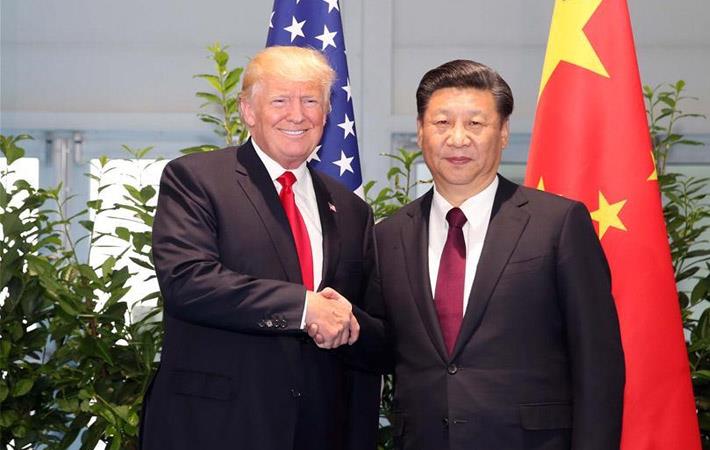The United States and China on December 1 agreed on a 90-day ceasefire in their trade war after talks between President Donald Trump and his Chinese counterpart Xi Jinping at the G-20 Summit in Buenos Aires. Both sides agreed to no escalation in tariffs beginning January and to immediately start talks on structural changes on a host of issues.
The issues are forced technology transfers, intellectual property protection, non-tariff barriers, cyber intrusions and cyber theft, services and agriculture, the White House said in a statement.The United States and China on December 1 agreed on a 90-day ceasefire in their trade war after talks between President Donald Trump and his Chinese counterpart Xi Jinping at the G-20 Summit in Buenos Aires. Both sides agreed to no escalation in tariffs beginning January and to immediately start talks on structural changes on a host of issues.#
The United States will leave tariffs on $200 billion worth of Chinese imports at 10 per cent at the beginning of the new year, agreeing to not raise them to 25 per cent ‘at this time’, the statement said.
“China will agree to purchase a not yet agreed upon, but very substantial, amount of agricultural, energy, industrial, and other product from the United States to reduce the trade imbalance between our two countries,” it said.
“China has agreed to start purchasing agricultural product from our farmers immediately,” it said.
Both countries agreed they will try to have this transaction completed within the next 90 days, failing which the 10 per cent tariffs will be raised to 25 per cent, the statement added.
The US National Retail Federation (NRF) in a statement said the US Administration’s decision to give diplomacy a chance and at least temporarily avoid the imposition of increased and additional tariffs is an encouraging sign. (DS)
Fibre2Fashion News Desk – India
